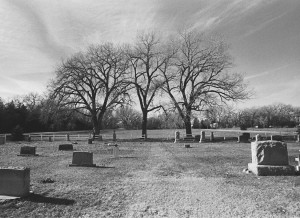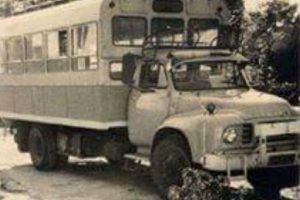
טיולית badford ©1969, friedman-tours.com
הסיפור הבא התרחש לפני שנים רבות בקצה רמת גן, במקום שבו רחוב הירדן הזורם בנתיב מקביל לנהר ממזרח שעל שמו הוא קרוי. שם, היכן שהוא פוגש ברחוב אלוף שדה, זה המושך משכונת רמת אפעל מערבה אל הערים גבעתיים ותל אביב. במקום שבו עומדים כיום בתי דירות גבוהים המשקיפים אל גגות הרעפים האדומים של שכונת רמת חן שמדרום. על אותו שטח ממש שכן פעם בניין אבן חד קומתי. היה זה בניין לבן וסתמי, נצר לארכיטקטורה הסגפנית שאפיינה את ענף הבניה בשנותיה הראשונות של העיר. בניין חסר חן או יחוד, שלא הסגיר את ייעודו בכל אופן לעוברים ולשבים. אלה מצידם היו חולפים על פניו מבלי משים, אצים לדרכם ברחובות העיר שנדמו אז כאילו היו גדולים ורחבים והיום גדושים ופקוקים הם כעורקיו של חולה לב רגע לפני שהתנועה דמה בהם. על אף ששכן אך כקילומטר בודד מבתינו, לנו הילדים נתפס אז הצומת כמקום רחוק, כזה שפוגשים רק אם חולפים דרכו בנסיעה. נהגנו לחצותו בדרך כלל בסופי שבוע, דחוסים בסדר ישיבה קבוע על הספסל האחורי של החיפושית הלבנה בדרכינו ליעד כזה או אחר. כמו רבים אחרים, גם אנו לא שעינו אל אותו בניין, והוא נטמע אל תוך השעמום האורבני של בתי מגורים דו ותלת קומתיים שניצבו לאורך רחובות העיר המתפתחת ובאזור כולו.
כל זה השתנה ביום אביב חמים אחד, לקראת סוף כיתה ה’. ישבנו אז בני ובנות הכיתה לאורך ספסלי משאית טיולים רועשת שהובילה אותנו מבית הספר אל שיעור שחיה בבריכה העירונית. המשאית חרקה וגנחה לאורך המסע בן עשר הדקות כמו היתה ספינת משא החותרת דרכה בין גלי ים סוערים. משהגיעה זו אל מול בניין האבן האטה ועצרה, גומעת לעצמה שניות ארוכות של מנוחה נוהמת לאורו של הרמזור האדום שבצומת. השקט הרגעי אפשר לנו שניות יקרות של שיחה בטונים נמוכים יותר, אך אלו נדמו גם הן משהתחוורה החוויה החדשה בנחירינו. מבעד לחלונות המשאית הפתוחים חדר ואפף אותנו ניחוח עשיר ומגרה של לחם טרי באפייתו. מבטינו תרו מצד לצד, מנסים לאתר את מקור הריח. תוך שניות נפתרה החידה. בית האבן הלבן, חסר הגינונים והצביון הכיל בתוכו מאפיה קטנה! והריח, אוה הריח. מהסוג שלא חשוב מתי אכלת לאחרונה וכמה ואם בכלל רעב אתה. לחם אכול תאכל, עכשיו ומיד. בלי חמאה, גבינה, או כל ממרח אחר. לחם טרי וחם שריחו מזמין לנגוס בו ללא שהות, דוחק בך לקרוע ממנו חלק גדול ולמלא בו את פיך. לתחוב אצבעות קשיחות אל תוך רכותו החמה ולבצע בו מעשים מגונים של רעב ותשוקה ולשחרר ממנו אדים לחים המכים בחוזקה בנחיריים רוטטות… אוההה… לחם טרי…
הרמזור התחלף לירוק והספינה הפליגה דרומה. ואנו, חבורה תמימה ומזיעה של בני אחת עשרה נותרנו ותאוותינו בידינו. דקות ספורות אחר כך כבר טבלנו במימי הבריכה שקיררו את גופינו המיוזעים ותשוקתנו ההומה. שנים עוד יעברו לפני שנחווה סוגים אחרים של תאווה בעוצמה שכזו. אבל ממש כמו בדברים אחרים מסוג שכזה, את הפעם הראשונה לא שוכחים.
Bread
The following story took place many years ago on the outskirts of Ramat Gan, where Jordan Street that flows parallel to the river east of there, which name it bears. There, where it meets Aluf Sade Street, which stretches from the Ramat Efal neighborhood westward toward the cities of Givatayim and Tel Aviv. Where high-rise apartment buildings now stand, overlooking the red tile roofs of the Ramat Chen neighborhood to the south. On that, exact space once stood a single-story stone building. It was a white and bland building, a scion of the ascetic architecture that characterized the construction industry during the city’s early years. A building that lacked any grace or uniqueness, and which did not reveal its purpose in any way to passers-by. Those, in turn, would drive by it unknowingly, rushing through the city streets which back then seemed bigger and wider, and today are overflowing and congested, like the arteries of a heart patient moments before the blood ceases to move in them. Even though it was only a kilometer away from our house, we kids perceived the intersection as a distant place, one you meet only when traveling through it in a car. We happened to cross it mostly on weekends, crowded in our regular seating lineup on the back seat of the white Beetle, on our way to one destination or another. Like many others, we too did not pay attention to that building, and it blended into the urban boredom of two-and three-story residential buildings that stood along the streets of the developing city, and the entire area.
All that changed one warm spring day, towards the end of fifth grade. We sat, boys and girls classmates, on the wooden benches of a noisy truck that drove us from school to a swimming lesson in the municipal pool. The truck creaked and moaned along the ten-minute voyage as if it were a freighter sailing through stormy sea waves. As it reached the front of the stone building, it slowed down and stopped, taking in long seconds of grunted rest to the red traffic light at the intersection. The momentary silence granted us precious moments of lower tones conversation, but those too ceased once the new experienced was realized in our nostrils. Through the open truck’s windows poured a rich and stimulating aroma of fresh bread being baked. Our eyes searched from side to side, trying to locate the source of the smell. Within seconds, the puzzle was solved. The white, stateless, stone building contained a small bakery within it! And the smell, oh the smell. The kind where it does not matter when you last ate, how much, and if hungry you are at all. Bread you shall eat, now and immediately. Without butter, cheese, or any other spread. Fresh, warm bread, which smells invites you to bite into it without delay, urges you to tear off a large piece and fill your mouth with it. Press hard fingers into its warm softness, and perform on it lewd acts of hunger and passion, releasing damp steam from it, which strikes hard at your vibrating nostrils… ohhh… fresh bread…
The traffic light turned green and the ship sailed south. We, an innocent and sweaty bunch of eleven-year-olds, remained with our lust unfulfilled. Moments later we dunked into the pool water, which cooled our sweaty bodies and active desires. Years would pass before we will experience other types of lust with such intensity. Nevertheless, much like other things of this sort, you never forget your first time.
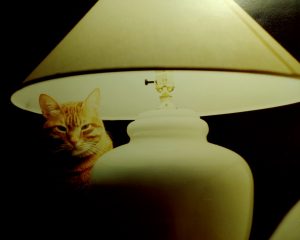 To receive the proper attention it deserves, this collection of short and funny cat stories can be found on its own page via
To receive the proper attention it deserves, this collection of short and funny cat stories can be found on its own page via 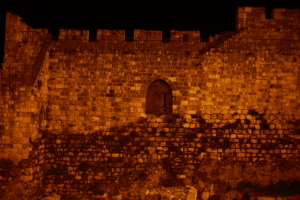 Someone shook my shoulder to wake me up. The chill sent me shivering as I awakened from an uncomfortable slumber. The ground I laid on instantly reminded me of where I was. I held my hand up and looked at my Seiko. The hands glowed dimly. 2 a.m. Time to get up.
Someone shook my shoulder to wake me up. The chill sent me shivering as I awakened from an uncomfortable slumber. The ground I laid on instantly reminded me of where I was. I held my hand up and looked at my Seiko. The hands glowed dimly. 2 a.m. Time to get up.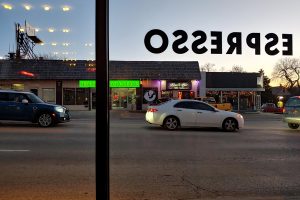
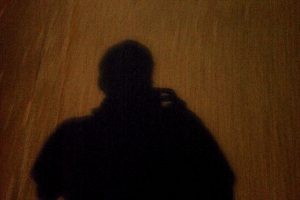
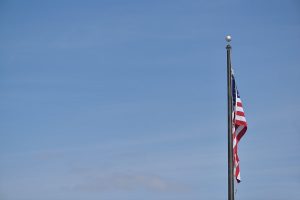
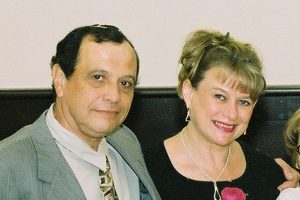
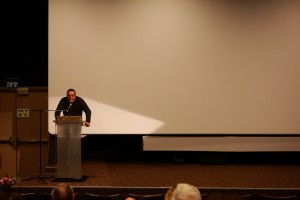 I am on my way to Jerusalem. I am heading to the Jerusalem Cinematheque on an invitation to attend a screening of a movie produced by a friend. I drive from Tel Aviv, and chose to leave a bit earlier for the trip. Three and a half hours early to be exact. That is a long time. Most days this drive takes about an hour. But this is holiday time, and I chose to play it safe. My early departure proves itself worthy as soon as I leave the neighborhood. Traffic is a nightmare all around. Swarms of cars congest every street, merging in a slow and tense crawl into intersections and struggling to exit them. When I finally make it onto Netivey Ayalon, the highway that crosses Tel Aviv, I find it too overcrowded with traffic. More than an hour of stop and go traffic passes before I get on Highway 1, the road to Jerusalem. The situation there does not fare better. Traffic is mostly a standstill. The logjam gives rise to road stress. Drivers cut in traffic, change lanes, and tailgate for the mere illusion of getting there faster, anywhere they might be heading.
I am on my way to Jerusalem. I am heading to the Jerusalem Cinematheque on an invitation to attend a screening of a movie produced by a friend. I drive from Tel Aviv, and chose to leave a bit earlier for the trip. Three and a half hours early to be exact. That is a long time. Most days this drive takes about an hour. But this is holiday time, and I chose to play it safe. My early departure proves itself worthy as soon as I leave the neighborhood. Traffic is a nightmare all around. Swarms of cars congest every street, merging in a slow and tense crawl into intersections and struggling to exit them. When I finally make it onto Netivey Ayalon, the highway that crosses Tel Aviv, I find it too overcrowded with traffic. More than an hour of stop and go traffic passes before I get on Highway 1, the road to Jerusalem. The situation there does not fare better. Traffic is mostly a standstill. The logjam gives rise to road stress. Drivers cut in traffic, change lanes, and tailgate for the mere illusion of getting there faster, anywhere they might be heading.
